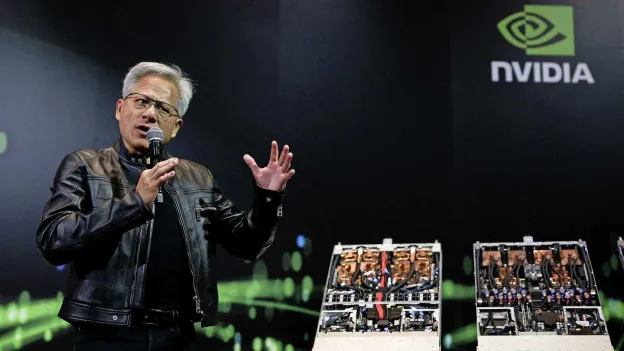
Nvidia CEO Criticizes Trump's Chip Export Policy, Accelerates Chinese Innovation

amsterdam - Nvidia's CEO, Jensen Huang, condemns Trump's chip export controls, stating they boost Chinese innovation. The export restrictions have led to Chinese tech giants developing their AI hardware, challenging Nvidia's market share in China.
Nvidia CEO Jensen Huang Slams Trump's Chip Export Controls
Nvidia's CEO, Jensen Huang, has strongly criticized the chip export policies implemented by the Trump administration, arguing that they have backfired and actually accelerated Chinese innovation in the semiconductor industry.
Impact on Chinese Innovation
Huang expressed his disapproval during a speech at the Computex tech fair, where he highlighted how the export controls imposed on chips sent from the U.S. to China have inadvertently spurred Chinese competitors to hasten the development of their own products.
He particularly pointed out that the restrictions have empowered Chinese tech giants like Huawei to invest in creating competitive hardware for artificial intelligence, diminishing Nvidia's once dominant market share in the region.
Consequences and Responses
The restrictions, exemplified by the ban on Nvidia's H20 chip tailored for the Chinese market, resulted in a substantial $5.5 billion write-down for the company. Huang also criticized the AI diffusion rule introduced by the Biden administration, emphasizing the need to accelerate innovation diffusion rather than restrict it.
While Trump revoked the diffusion rule due to inefficacy, the administration aims to introduce a new regulation to safeguard American technology dominance. However, the specifics and timeline of this new rule remain uncertain.
Future Outlook
The export controls have prompted Chinese tech firms like Tencent and Alibaba to expedite their adoption of domestically produced AI chips. China's push for self-reliance in semiconductor technology aligns with the government's directives to reduce foreign chip dependencies.
The escalating competition in China's AI market underscores the critical implications of global trade policies on technological innovation and market dynamics.


Leave a comment